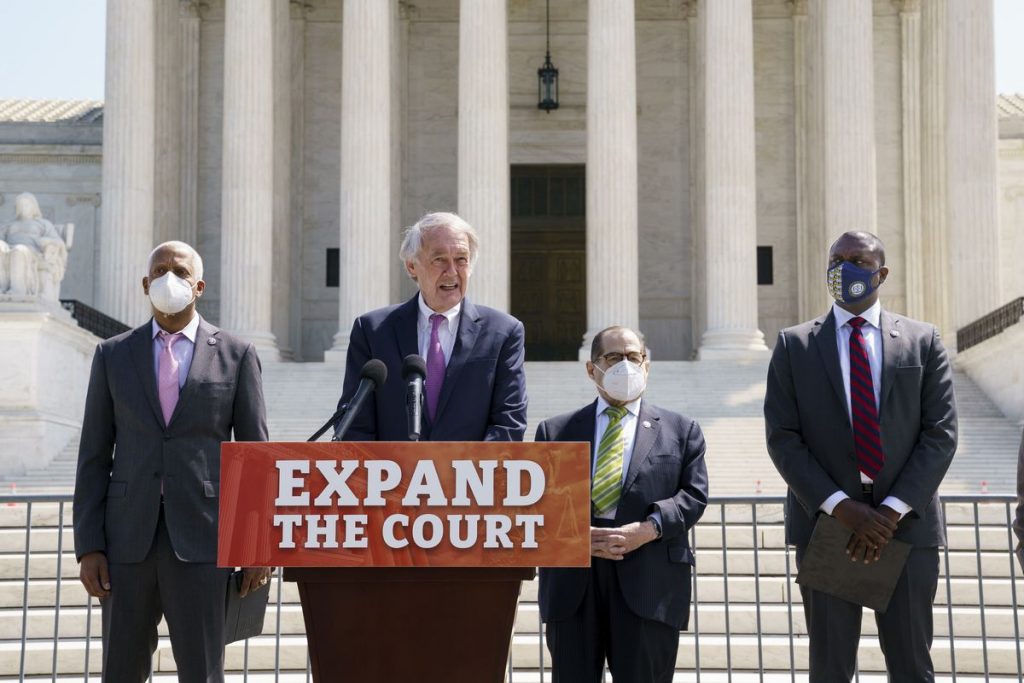Blog Post
Court-packing is delayed, Colombia avoids euthanasia (and other stories)
A roundup of news from around the interwebs.
***
As I’ve been noting over the past several years, we will soon be facing a post-Christian generation in America—and that will have a profound impact on politics. Despite some largely nonsensical optimism about Gen Z, promoted by grifters like Milo Yiannopoulos and other commentators, the most recent numbers indicate that it will be a post-conservative generation, too. From National Review:
In nearly every regard, those attending university are more progressive than their younger counterparts. The difference in favorability ratings between the two parties, for example, shrinks from a 44-point gap to a 30-point one when you measure only the younger cohort. That means, though, that it expands to a shocking 59 points when you examine only the older group.
College students are also much more likely to support defense cuts, believe in the efficacy of green-energy spending, and prefer a larger government with more programs to a smaller one with less. Both groups favor a $15/hour federal minimum-wage hike — and by nearly identical margins — but collegiate respondents are less likely to change their mind after they’ve been informed of the Congressional Budget Office’s estimate that such a hike would cost 1.4 million jobs. Unsurprisingly, they’re also substantially less inclined to believe students such as themselves have an obligation to pay back their loans and are more inclined to support a forgiveness program. The one issue on which university attendees hold the more conservative position is taxes — for those making over $400,000, that is, which is an income bracket they are far more likely to join.
If things don’t change and the GOP doesn’t pivot to create a new coalition, the long-term future of conservative politics in America is bleak.
***
The Washington Examiner notes that while the progressive wing of the Democratic Party wants to ram their entire agenda through while they control all levers of power, more strategic leaders may want to avoid more incendiary issues—like court-packing—for now:
President Joe Biden punted the size of the Supreme Court to a commission, and White House press secretary Jen Psaki told reporters on Thursday, “He certainly understands that members of Congress have a range of views, and they’re going to propose legislation. He may or may not support it.”
House Speaker Nancy Pelosi was less equivocal. “No,” the California Democrat told reporters when asked about Nadler’s bill. “I have no plans to bring it to the floor.”
Of course, this just means that Biden and Pelosi have their eye on 2022. After that, all bets are off.
***
Good news from Colombia, where the Congress rejected a bill to regulate euthanasia due to lack of a quorum:
The House of Representatives ground to the project that sought to regulate euthanasia for adults in Colombia and settled the debate by denying the final report of the presentation. The initiative of the liberal representative Juan Fernando Reyes Kuri achieved its first triumph in Congress on the night of April 7. The promoters of euthanasia obtained a majority to deny two archival proposals and the project went to a second debate.
But the triumph did not last 24 hours. This Thursday, the House of Representatives voted the report with which the presentation of the euthanasia project ends, in which 82 representatives voted in favor. The initiative required a minimum of 85 representatives in favor to remain alive in the legislative process, because it is a statutory law. Five congressmen voted against it and 70 left the plenary to reject the discussion.
Suicide activists and euthanasia supporters are committed to continue the political push.
***
More soon.








